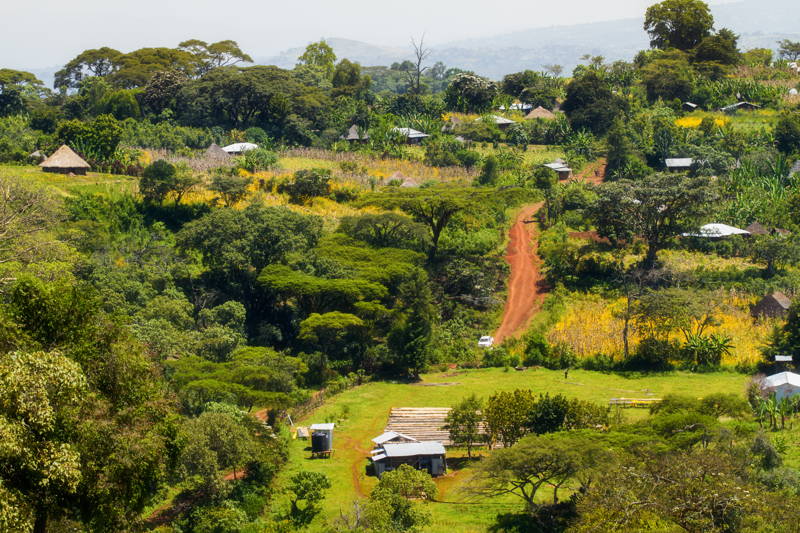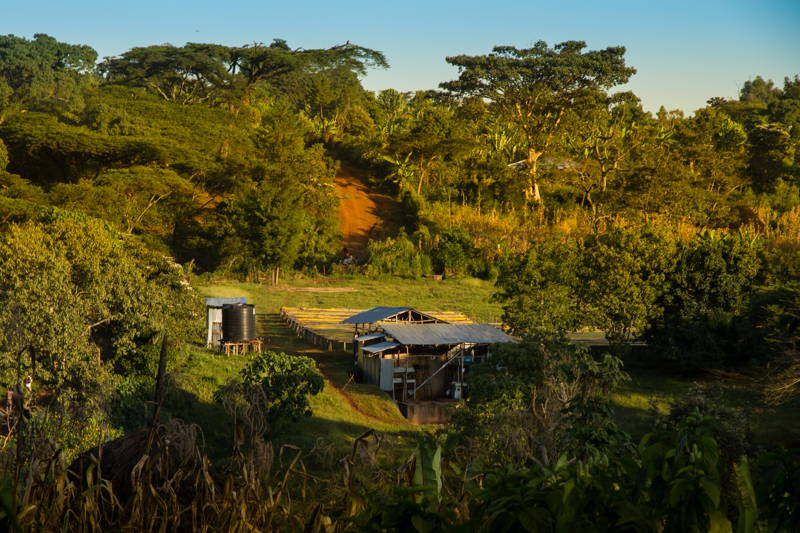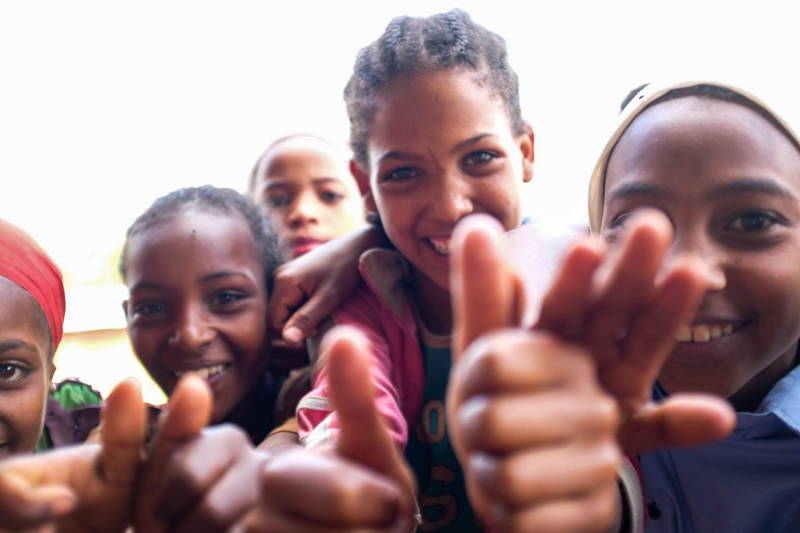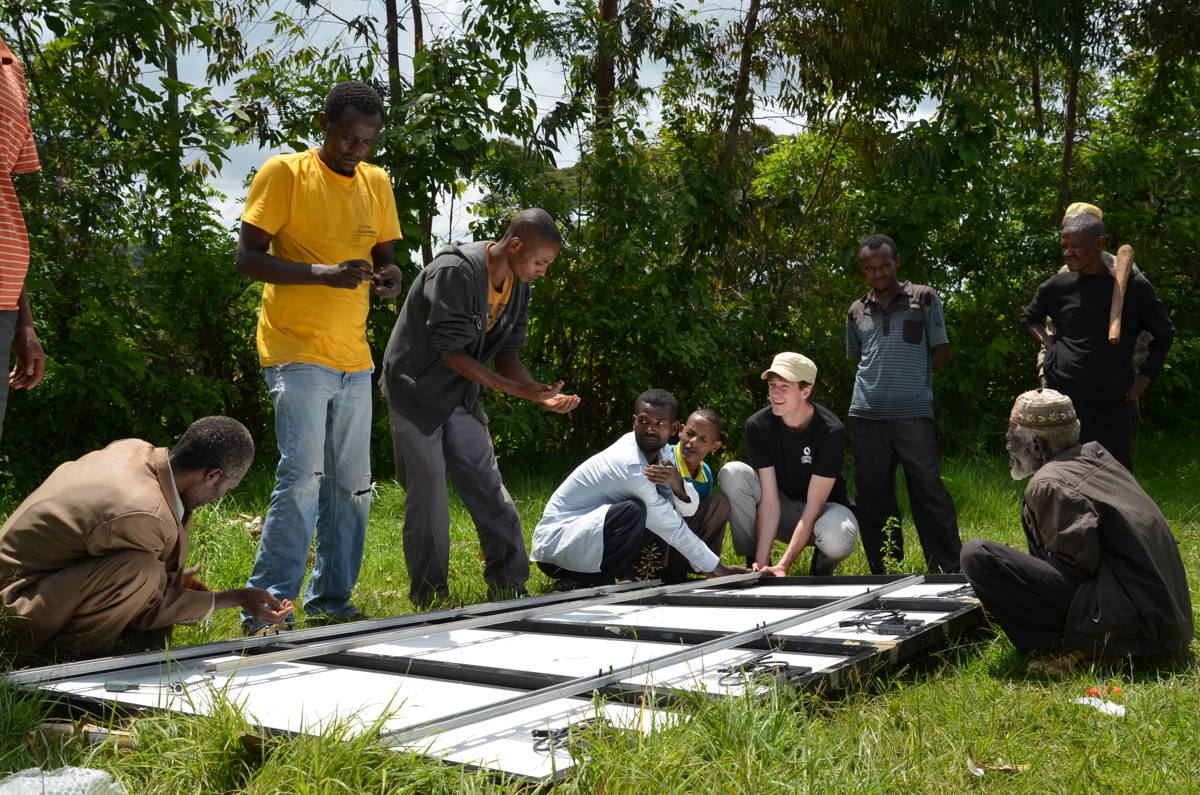
Solar plant for health station in Jimma, Ethiopia
In 2013, together with coffee farmers and villagers, the local government, and our partner, the Solar Energy Foundation, we were able to complete the construction of a solar power plant in the coffee cooperative Wokito Medalu for a donation volume of more than € 25,000. It was the most elaborate project we have undertaken to date.
A health center that served 10,000 people in the region could only cool vital medicines with a generator. The clinic in Jimma was not supplied with electricity, which led to various serious problems. With the help of the solar panels we installed together, blood, medicines, and vaccines can be cooled, as well as night treatments and births.
In brief
- Project volume: €26,183
- Implementation period: 2013
- Region: Jimma, Ethiopia
- NGO Partner: The Solar Energy Foundation
- Variety: Limu (cooperatives Ilketunjo, Doyo, Wokito, Alaga Sekala)
- Geo-coordinates: 36.81 oE to 36.47 oE; 7.56 oN to 7.91 oN
- Beneficiaries: about 10,000 people

Why was this project so important?
In the region around the Ilketunjo cooperative, from which we sourced our Limu coffee, there is a clinic that is responsible for the health care of 10,000 people. People from several communities travel up the mountain to the health center to be examined and treated. The catchment area is so large that some people – including pregnant women – have to walk an entire day to get there. The clinic is essential for the health of the inhabitants of the Jimma region. Between two and three children are born there every day. Despite this, the center had no electricity supply, only a generator powerful enough to power a freezer in which vital medicines and vaccines were stored. The situation was particularly paradoxical because the government had provided several medical devices, but they could not be used due to the lack of electricity. After a visit to the clinic, together with the doctors, nurses, and other staff, we realized that solar energy would be ideally suited to power the center and thus the residents of the region.
How was this project implemented?
The solar system is still working today.
The import and installation of the solar panels initially presented us with challenges that we could only solve with patience and luck. However, the most elaborate project for us up to that point was worth every effort. Coffee Circle co-founder Martin Elwert was on site to help with the delivery and installation of the solar station.
Stephan Eicke: Martin, how did you transport the solar panels to the clinic?
Martin Elwert: It was an odyssey. We had to import the panels as well as the batteries because they were not available locally. For this, we teamed up with an NGO from Berlin, which helped us. But then there was a problem: My colleague Anne and I were standing at customs in Ethiopia waiting for the panels to be waved through at any moment. They were then stuck in customs for several weeks. We sat at customs for four days and nights waiting for something to happen. We were unlucky: shortly before, 30 officials had been arrested for corruption, which meant that everything came to a standstill because no one wanted to make decisions. So we didn’t get the panels. The customs officials asked us, „What are these?“ „Solar panels.“
There is no import tax on solar panels. „For that, you have to go to the Ministry of Energy first to get a confirmation.“ So we went to the ministry. „Where are the panels?“ „In customs.“ „If they’re in customs, we can’t confirm they’re there.“
We were stuck, at the same time, we could not wait any longer because our stay in Ethiopia was limited. Our vehicles were ready, we still had eight hours to drive to Jimma. We came up with a plan: What is the most expensive thing to import? Consumer electronics, on which you pay 100% duty. It was a high amount, but we just passed the panels off as electronics. We were lucky that our partner in Berlin, the NGO, didn’t give us the full price, so we still got off cheap. So we were able to go to Jimma with the items and install the panels under great time pressure. Shortly before dusk, before we had to leave again, it became light. At first, not all devices could be connected because they used too much electricity, but the Solar Energy Foundation, which has a branch in Ethiopia, supported us by advising the health center by phone and video. The solar system is still working today (as of November 2021).
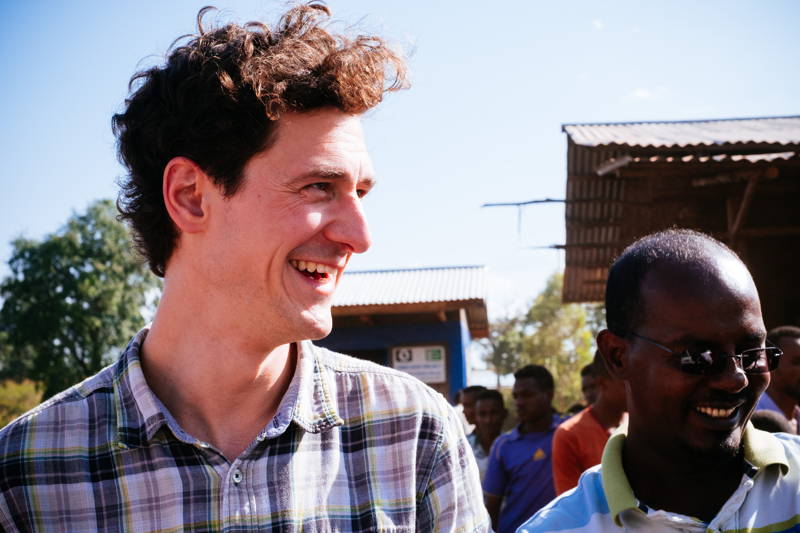
Our coffees from Ethiopia
What has changed?
The foundation supported and advised the clinic until 2015. Since then, the community has taken care of maintenance exclusively on its own. Initial fears that the batteries would not last more than two years proved unfounded. Whereas previously several employees had to provide light with their cell phones and flashlights during births and operations, there was now sufficient electric light thanks to the solar panels. As a result, the first baby born at the clinic after the installation was christened „Light.“
However: further solar projects were out of the question for Coffee Circle. For one thing, says Martin Elwert, „importing the panels is a nightmare. For another, entire communities in Ethiopia were equipped with solar panels until the government pressured them to connect to the grid to fulfill contracts with foreign energy suppliers.“ As a result, numerous Ethiopian towns are now powered by coal-fired energy, despite having once installed solar panels.
An article by Stephan Eicke
